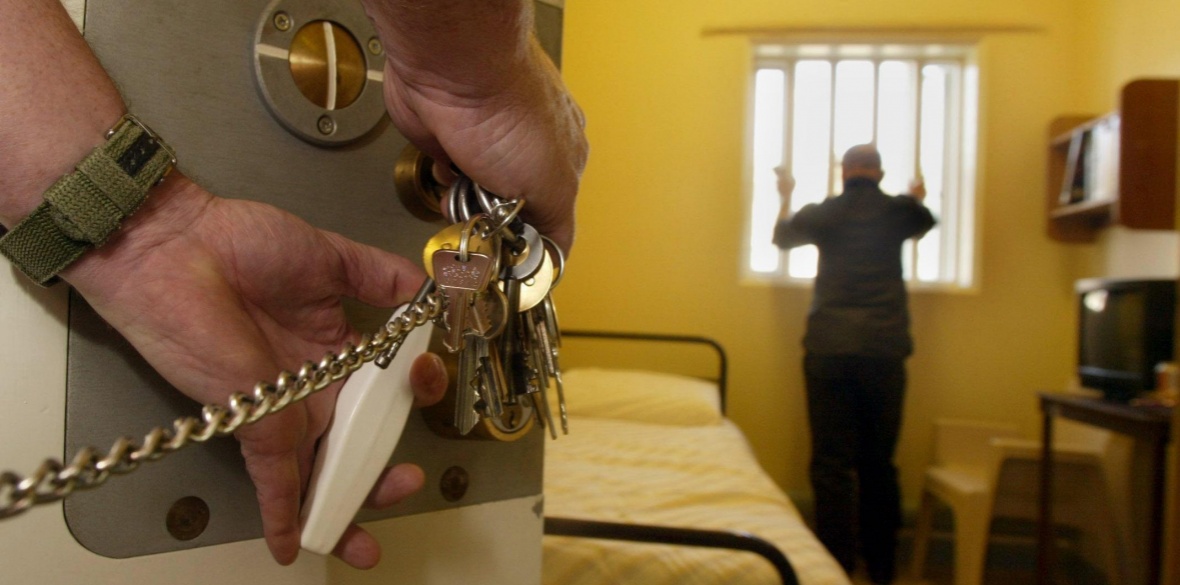This is the last article you can read this month
You can read more article this month
You can read more articles this month
Sorry your limit is up for this month
Reset on:
Please help support the Morning Star by subscribing here
STARTING in 2010 a series of work and hunger strikes took place in US prisons involving thousands of prisoners. These actions culminated in 2012 in a historic statement — an Agreement to End Hostilities — issued by men held in long-term solitary in Pelican Bay State Prison.
It reads: “Beginning on October 10 2012, all hostilities between our racial groups…will officially cease… We can no longer allow [the California Department of Corrections and Rehabilitation] to use us against each other for their benefit!”
They urged their families campaigning for them to also cease racial hostility.
This agreement laid the basis for more unified collective action and a groundbreaking two-month hunger strike the following year of over 30,000 prisoners in California which accomplished massive change – starting with visibility and respect for this prisoner-led struggle, but also the release of over 1,600 prisoners from solitary, the prospect of parole for thousands more, concrete improvements in living conditions, a reduction in violence between prisoners and legislative change that ended indefinite solitary confinement in the state.
There is a myth that the barbarity of solitary confinement does not exist in Britain, but we at the Crossroads Women’s Centre in Kentish Town have received calls from prisoners kept in solitary confinement who are restricted to their cells for 23 or more hours per day and cut off from family, friends and lawyers during the pandemic.
Prisoners have a Covid-19 death rate three times the national average.
Calls for the release of prisoners fell on deaf ears. Instead, the government has announced plans for an additional 500 prison places for women which is particularly horrifying considering the impact on the “95 per cent of children [who] have to leave their home when their mother goes to prison, as women are often primary carers.”
The campaign against this, highlighted in the Morning Star, demanded support for women “to tackle the issues that sweep them into crime in the first place, like domestic abuse and poverty.” As with male prisoners, a disproportionate number of women prisoners are women of colour and/or immigrant women.
While few women are kept in solitary in non-pandemic times, many describe their isolation as comparable to that.
One woman told us: “Each time I served a sentence I found it extremely hard. I had no contact with the outside world. I received no letters from any family or my partner.
“Any woman doing an incarcerated sentence is going to feel to some extent that we are in solitary confinement.”
In Britain, campaigns against solitary confinement have been spearheaded by prisoners held in Close Supervision Centres (CSCs) — prisons within prisons. Fifty per cent of CSC inmates are Muslim despite Muslims being only 5 per cent of the population.
Kevan Thakrar, who has spent 11 years in CSCs, almost all of it in solitary, is both Muslim and mixed race. Back in January Thakrar called and described his circumstances: “You remain locked in your cell, which is your bed, your toilet, your sink, your cupboard, the table and your chair.
“The window is sealed shut. And the extraction fan ventilation system — I assume the intent is to try and get us to die — has been turned off since the Covid outbreak.”
Along with his parents Thakrar is demanding his release from solitary and campaigning to overturn his wrongful conviction under the discredited joint enterprise law.
More than two weeks in solitary breaks the UN’s Nelson Mandela rules, has been called psychological torture by the UN special rapporteur on torture and CSCs themselves (formerly CSSs) have been labelled “cruel, inhuman or degrading treatment” by Amnesty International.
The Royal College of Psychiatrists (RCP) have given cover to the torture going on in CSCs by awarding them the label “Enabling Environments.” Some 60 organisations and hundreds of individuals, including mental healthcare providers, signed an open letter to the RCP demanding the withdrawal of awards to these racist institutions. Signatories also included Dr Angela Y Davis, campaigner and author Selma James, former prisoner Winston Silcott and poet Benjamin Zephaniah.
We have been heartened by the recent victory in New York State where the governor last month signed into law the abolition of solitary confinement for periods of more than 15 days.
On the other side of the scales the British government is building more detention centres for immigrants, while bulldozing ahead with its Police, Crime, Courts and Sentencing Bill, clearly intended to criminalise even more people, especially those of us involved in social justice movements. How many of us will end up in solitary?
With Legal Action for Women, we will be hosting an international webinar at 7pm on May 12 entitled Solitary Confinement is a Crime. The panel includes Thakrar and another survivor of solitary confinement and torture, campaigners, healthcare professionals, prisoner’s family members and one of the most famous political prisoners in the world — Mumia Abu Jamal who spent decades on death row in solitary confinement.
Sara Callaway is a member of Women of Colour in the Global Women’s Strike.
Sam Weinstein is a member of Payday men’s network.
Join the webinar by registering at www.refusingtokill.net.











